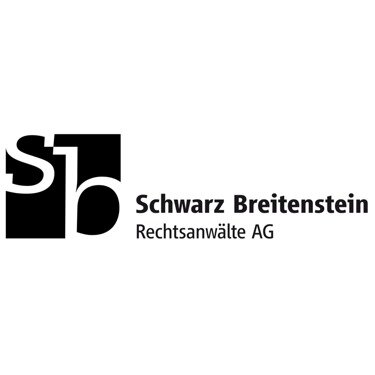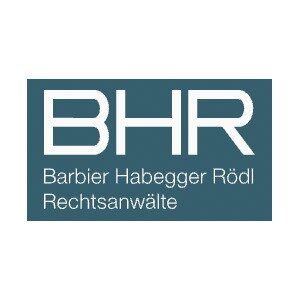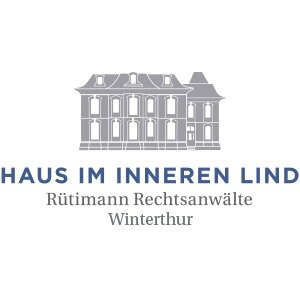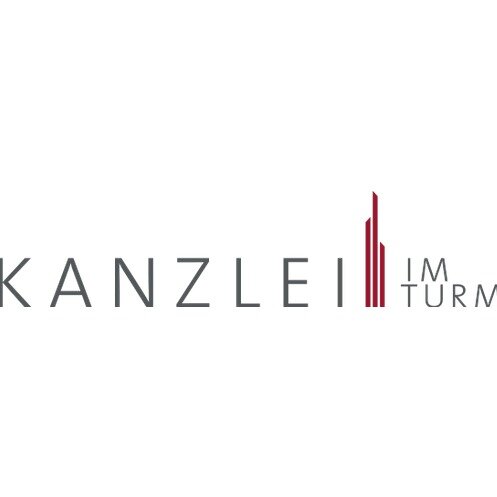Best Energy, Environment & ESG Lawyers in Winterthur
Share your needs with us, get contacted by law firms.
Free. Takes 2 min.
List of the best lawyers in Winterthur, Switzerland
About Energy, Environment & ESG Law in Winterthur, Switzerland
Energy, Environment, and ESG (Environmental, Social, and Governance) law covers the legal framework that governs the use and preservation of natural resources, management of environmental impacts, and controls over sustainable business practices. In Winterthur, Switzerland, this area of law is shaped by cantonal regulations, federal Swiss law, and European standards. As a growing city with a commitment to environmental innovation, Winterthur is a hub for energy efficiency initiatives, renewable energy projects, and a variety of ESG-focused corporate strategies.
Why You May Need a Lawyer
Legal professionals specializing in Energy, Environment, and ESG play a vital role for individuals, companies, and organizations. You may need a lawyer in this area if you are:
- Starting or operating a business that deals with energy production, distribution, or storage
- Developing or investing in renewable energy projects like solar or wind parks
- Facing challenges involving environmental permits or compliance with Swiss environmental legislation
- Adopting or implementing ESG standards and need guidance on Swiss and international reporting requirements
- Confronted with claims or proceedings related to pollution, waste disposal, or land use conflicts
- Involved in disputes with governmental authorities over zoning, planning, or environmental impact
A knowledgeable lawyer can help you navigate these challenges by interpreting complex regulations, representing your interests before authorities, and helping you meet your legal obligations while pursuing sustainability goals.
Local Laws Overview
In Winterthur, Energy, Environment, and ESG matters are influenced by several layers of regulation:
- Federal Swiss Law: The Swiss Environmental Protection Act and Energy Act set nationwide minimum standards for environmental protection, energy efficiency, and climate goals.
- Cantonal Regulations: The Canton of Zürich, where Winterthur is located, implements its own environmental and building codes, which can include stricter requirements for air quality, noise, waste management, and building energy performance.
- Municipal Policies: Winterthur has introduced local plans for sustainable development, including incentives for green building and renewable energy installations.
- ESG Reporting: Larger companies are subject to transparency obligations, requiring disclosure of non-financial information regarding social impact, environmental management, and governance practices.
Compliance can be complex, particularly for organizations juggling requirements at the municipal, cantonal, federal, and sometimes international levels.
Frequently Asked Questions
What is ESG and how does it apply to businesses in Winterthur?
ESG stands for Environmental, Social, and Governance. It refers to a set of standards that businesses use to operate responsibly, reduce environmental impact, treat employees and stakeholders ethically, and maintain transparency in management. In Winterthur, companies, particularly large ones or those in the energy sector, are expected to report on ESG metrics and comply with corresponding laws.
Are there special permits needed for starting a renewable energy project?
Yes, setting up renewable energy projects like solar panels or wind turbines typically requires various permits from local and cantonal authorities. These may include building permits, environmental impact assessments, and grid connection approvals.
What are the key environmental compliance requirements for businesses?
Common requirements include compliance with waste treatment regulations, pollution limits, energy efficiency standards for buildings, and provisions for environmental remediation if contamination occurs. Regular reporting may also be necessary.
Who enforces environmental laws in Winterthur?
Enforcement is carried out by a combination of municipal authorities, the canton of Zürich's environmental agencies, and in some cases, federal environmental bodies.
What should I do if I receive a notice of violation for environmental regulations?
Reach out to an experienced lawyer immediately. Do not ignore the notice. Your lawyer can help you understand the alleged violation, advise on your rights and obligations, and represent you in discussions or hearings with authorities.
Can individuals or groups object to new energy or infrastructure projects?
Yes, there are structured procedures for public participation. Individuals and organizations have the right to object or provide feedback on projects during the planning and approval stages.
Are there incentives for adopting sustainable energy solutions?
Yes, both federal and cantonal governments offer incentives such as subsidies, tax rebates, or preferential loan schemes for installing renewable energy systems or improving energy efficiency in homes and businesses.
How does Swiss law handle corporate ESG reporting?
Swiss law requires large companies, and those listed on the stock exchange, to provide annual reports disclosing non-financial risks and ESG measures. Requirements are expanding, so it is important to stay up-to-date.
What legal risks exist for companies ignoring ESG obligations?
Penalties can include fines, loss of permits, damaged reputation, difficulty attracting investment, and potential exclusion from public contracts or supply chains.
Is legal advice necessary for environmental disputes?
Yes, given the complexity of competing laws and interests, professional legal advice is crucial to achieving a positive outcome in environmental disputes.
Additional Resources
When seeking more information or support in the Energy, Environment, and ESG fields in Winterthur, consider reaching out to the following:
- City of Winterthur - Department of Environment and Energy
- Canton of Zürich Environmental Agency
- Swiss Federal Office for the Environment (FOEN)
- Swiss Federal Office of Energy (SFOE)
- Swiss Business Federation (economiesuisse) for ESG best practices
- Non-governmental organizations such as WWF Switzerland and Swiss Energy Foundation
- Local law firms specializing in environmental and energy law
Next Steps
If you find yourself facing an energy, environmental, or ESG-related issue in Winterthur, Switzerland, it is important to seek timely and qualified legal advice. Start by gathering all relevant documents and details about your situation. Research lawyers or law firms with proven expertise in these fields. Arrange a consultation to discuss your case and understand your legal options. Acting early ensures compliance, helps you avoid costly penalties or disputes, and supports your commitment to sustainability.
Professionals in this field can guide you through regulations, application processes, and dispute resolution, ensuring your actions are legally sound and aligned with best practices. Do not hesitate to seek support-legal expertise is your best asset for navigating the evolving landscape of Energy, Environment, and ESG law in Winterthur.
Lawzana helps you find the best lawyers and law firms in Winterthur through a curated and pre-screened list of qualified legal professionals. Our platform offers rankings and detailed profiles of attorneys and law firms, allowing you to compare based on practice areas, including Energy, Environment & ESG, experience, and client feedback.
Each profile includes a description of the firm's areas of practice, client reviews, team members and partners, year of establishment, spoken languages, office locations, contact information, social media presence, and any published articles or resources. Most firms on our platform speak English and are experienced in both local and international legal matters.
Get a quote from top-rated law firms in Winterthur, Switzerland — quickly, securely, and without unnecessary hassle.
Disclaimer:
The information provided on this page is for general informational purposes only and does not constitute legal advice. While we strive to ensure the accuracy and relevance of the content, legal information may change over time, and interpretations of the law can vary. You should always consult with a qualified legal professional for advice specific to your situation.
We disclaim all liability for actions taken or not taken based on the content of this page. If you believe any information is incorrect or outdated, please contact us, and we will review and update it where appropriate.
Browse energy, environment & esg law firms by service in Winterthur, Switzerland
Winterthur, Switzerland Attorneys in related practice areas.












